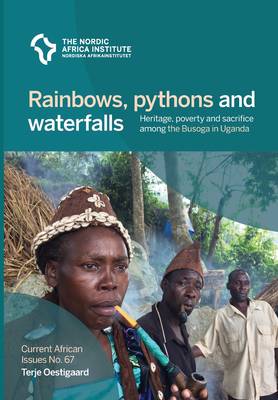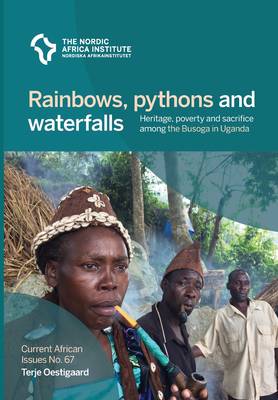
- Retrait gratuit dans votre magasin Club
- 7.000.000 titres dans notre catalogue
- Payer en toute sécurité
- Toujours un magasin près de chez vous
- Retrait gratuit dans votre magasin Club
- 7.000.0000 titres dans notre catalogue
- Payer en toute sécurité
- Toujours un magasin près de chez vous
Rainbows, pythons and waterfalls
Heritage, poverty and sacrifice among the Busoga in Uganda
Terje OestigaardDescription
Cultural and natural heritage is a fundamental part of society and crucial in any development process; yet because of the complexity, it has proved difficult to incorporate culture and tradition in actual policy practice. Here the rich heritage of the Busoga is explored, using the water cosmology at the Itanda Falls in Uganda, with a specific emphasis on a rainmaking ritual and sacrifice to the rain-god during a drought. While rainmaking rituals cannot mitigate climate change in the modern world, and while fewer and fewer people believe in the traditional religion, the past and its traditions are still sources for the future. As we rethink the role of heritage in the processes of poverty alleviation, it is argued, a strong emphasis on cultural and natural heritage is one of the most efficient and important areas of long-term development in an era of globalization, when traditions are disappearing. Without a past, there is no future.
Spécifications
Parties prenantes
- Auteur(s) :
- Editeur:
Contenu
- Nombre de pages :
- 152
- Langue:
- Anglais
- Collection :
- Tome:
- n° 67
Caractéristiques
- EAN:
- 9789171068477
- Date de parution :
- 06-09-19
- Format:
- Livre broché
- Format numérique:
- Trade paperback (VS)
- Dimensions :
- 170 mm x 244 mm
- Poids :
- 344 g

Les avis
Nous publions uniquement les avis qui respectent les conditions requises. Consultez nos conditions pour les avis.






